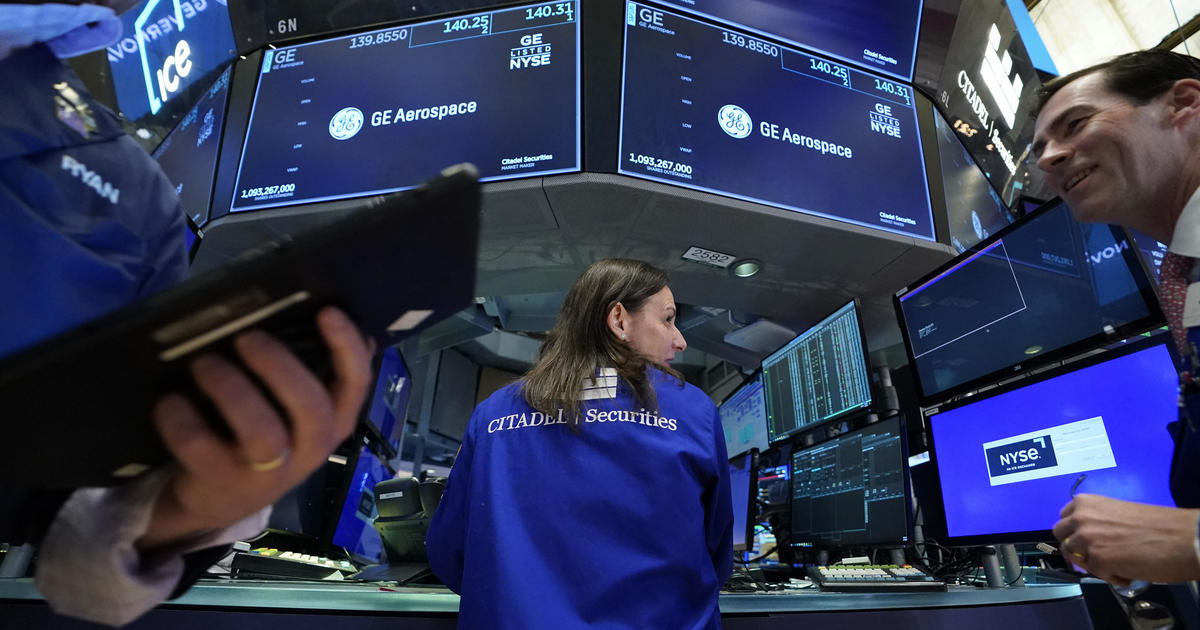CBS News
Stocks waver and oil prices rise after Israeli missile strike on Iran

Stock futures dipped and oil prices rose in overnight trading after an Israeli missile struck Iran following Iran’s retaliatory attack on the country last weekend.
Investors are closely watching conflicts in the Middle East for signs that escalating hostilities between Israel and Iran threaten global oil supplies and drive up energy prices.
Crude prices, which rose to their highest level in months after Iran’s drone and missile attack on Israel on April 13, rose above $90 early Friday before relinquishing those gains amid signs that the Iranian government was downplaying the impact of the Israeli attack.
Stock futures on the S&P 500 fell 0.6%, while the Dow Jones Industrial Average and Nasdaq Composite index declined 0.5% and 0.7%, respectively.
“While geopolitics is going to stay a presence in this market for a while … we think the events of the last 12 hours in Iran are encouraging, as they will help cool tensions between Israel and Tehran, at least for the time being,” Adam Crisafulli of Vital Knowledge said in a note to investors.
In oil trading, U.S. benchmark crude rose was trading 11 cents higher at $82.22 per barrel in electronic trading on the New York Mercantile Exchange. Brent crude, the international standard, gained 7 cents to $87.18 per barrel.
“The attack — and the threat of retaliation to it — has increased the risk to physical supply of oil, but the response this morning suggests that some of that risk has already been priced in,” Neil Shearing, group chief economist, with Capital Economics, said in a report.
A range of factors has driven up gasoline prices in the U.S. over the last month, with the national average for a gallon of regular now at $3.67, up 21 cents from a month ago, according to AAA. Fuel costs typically rise around this time of year as more motorists hit the road and oil refineries take advantage of milder weather to do necessary maintenance, which can crimp supplies.
Yet while the wars in the Middle East and Ukraine have oil investors on edge, AAA doesn’t expect domestic gas prices to spike for now, pointing to a dip in fuel demand between the end of spring breaks around the U.S. and Memorial Day holiday.
—The Associated Press contributed to this report.
CBS News
What makes a martini a martini?

Nowadays, what makes a martini a martini? Robert Simonson, who wrote a book about the martini, said, “It’s funny: it’s strict and loose at the same time.”
Ten Speed Press
Everyone seems to have an opinion about the cocktail: “Ingredients, proportions, garnishes – it’s all subject to debate,” Simonson said. “I’m a purist. I would think it needs to be gin and vermouth. But I’m willing to bend and say, ‘Okay, vodka and vermouth as well.’ [However,] if there’s no vermouth in there, I don’t know how you can call it a cocktail.”
Simonson says the martini was probably named after a vermouth company. It was invented in America in the 1870s or ’80s when bartenders mixed gin with vermouth, a fortified wine made with herbs and spices. “It’s a very big player in cocktail history,” he said.
In the early 20th century, the “very-dry” martini became very-popular: Ice cold gin or vodka, garnished with a lemon twist, or an olive, or an onion, but only a little vermouth (or maybe not even a little).
Samantha Casuga, the head bartender at Temple Bar in New York City, says the reason why many people might not want vermouth in their martini is because, for years, vermouth was stored improperly. “It should be in the fridge,” she said.
CBS News
Casuga’s classic martini is two parts gin, one part vermouth, with a twist of lemon. She suggests that you probably shouldn’t order it the way James Bond does – shaken, not stirred. Casuga says she’s always stirring, but some people like the show behind the bar when a bartender shakes their cocktail. “Definitely, people love a good shake,” she said.
People also love to have a martini made just the way they want it. But Casuga understands why they might be so specific: “To have your own preferences, not only listened to and then executed, is, like, that’s luxury itself.”
Writer Robert Simonson says that a martini can also add a little luxury to your Thanksgiving. “It actually makes very good sense for Thanksgiving,” he said. “It will whet your appetite for the meal to come.
“There are very few American inventions more American than the martini. So, an American holiday, American drink.”
CBS News
For more info:
Story produced by Mary Raffalli. Editor: Remington Korper.
“Sunday Morning” 2024 “Food Issue” recipe index
Delicious menu suggestions from top chefs, cookbook authors, food writers, restaurateurs, and the editors of Food & Wine magazine.
CBS News
NATURE: Turkeys in South Dakota

Watch CBS News
Be the first to know
Get browser notifications for breaking news, live events, and exclusive reporting.
CBS News
An Italian masterpiece: Cacio e pepe

Watch CBS News
Be the first to know
Get browser notifications for breaking news, live events, and exclusive reporting.










